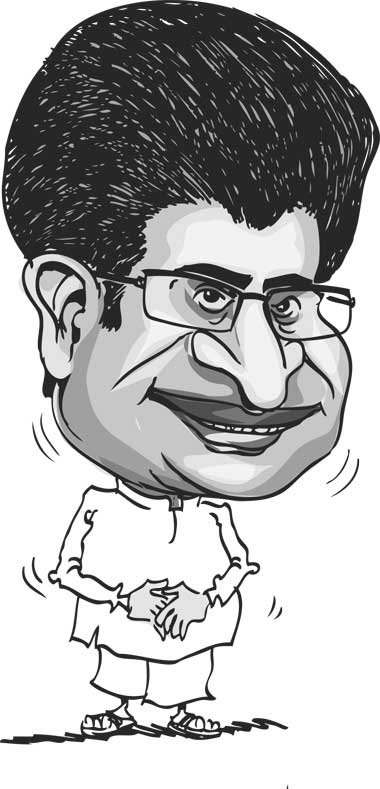Reply To:
Name - Reply Comment
Jathika Hela Urumaya (JHU) front liner Udaya Gammanpila who is contesting again for election to the Western Provincial Council launched a practical campaign on Thursday in a novel and inspiring move to curb or end the dirty politics including ill-gotten wealth and large scale corruption in election campaigns.
During the past 35 years especially, after the introduction of the executive presidential system and the preferential voting scheme, candidates say they have been forced to raise millions of rupees by fair  means or foul for their election campaigns at national, provincial and local council polls.
means or foul for their election campaigns at national, provincial and local council polls.
Before 1978, Sri Lanka had an electoral system where the candidates needed to campaign only in their electorates. There were 168 such electorates in 1977 but the 1978 constitution scrapped the electoral system and introduced a district system at General Elections in addition to a preferential voting scheme. As a result in general elections, the candidates had to campaign in the whole district. This means that if they had to raise Rs. 1 million for their own electorate, they now have to raise about Rs. 50 million to campaign in the whole district. Such is the case in the Provincial Council or Pradeshiya Sabha elections where the candidates have to campaign and win votes in the whole province or the whole Pradeshiya Sabha area.
As a result, most candidates and their supporters are compelled to resort to unethical if not illegal means to raise funds. Sometimes they use their own wealth and when they win they resort to kickbacks or commissions, corruption or frauds to regain the money they spent on the election. What it amounts to is a plunder of public funds in this era of selfishness and self-centeredness where most politicians come to grab from the country and not to give.
More than 50 years ago, the United States president John F. Kennedy told politicians and the people, “ask not what your country can do for you, but what you can do for your country.” For politicians today in most countries including Sri Lanka, it is largely a case of grabbing the wealth and the resources of the people, rather than giving.
In addition to their personal wealth or that of their supporters, candidates and parties seek or accept money from big business including transnational companies. As a consequence, they are indebted to these big business ventures and often their policies are not so much for the common good of the country but for the benefit of the rich and rolling elite, for their personal gain or glory.
In such a crisis – where most politicians worship money instead of serving and sacrificing for the people – Mr. Gammanpila is setting a wonderful example to all politicians. He says he has no campaign funds and has no intention of raising funds illegally and unethically or from big businesses. So he is pleading with the people for each of them to give him Rs. 100 and on Thursday itself he received Rs. 1,300 from 13 people who were at the news conference. Until the preference voting system is scrapped and a procedure of accountability and transparency is laid down for campaign funds, we wish Mr. Gammanpila well in his ‘pindapatha’ policy and we hope more politicians will take this high road.